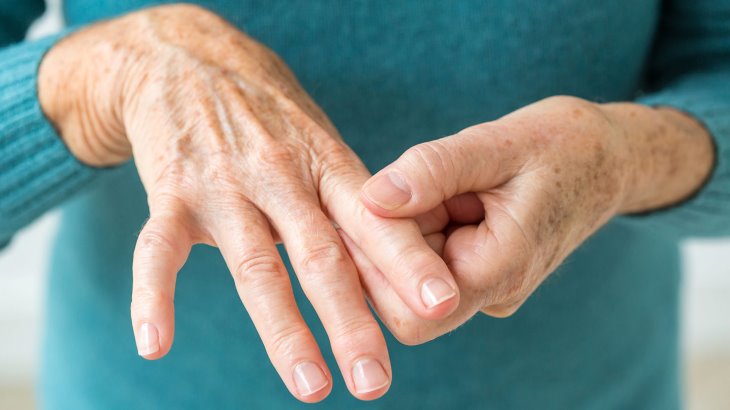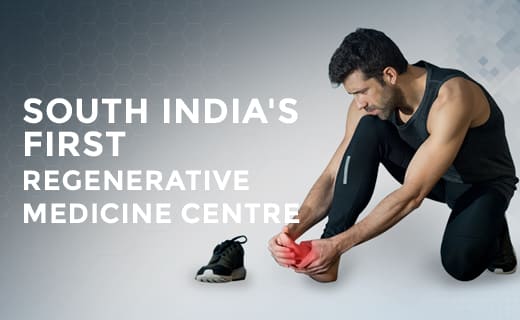What is Rheumatoid Arthritis?
Rheumatoid Arthritis is a chronic inflammatory disease that can harm more than just your joints. It is an autoimmune disorder where the body's immune system mistakenly attacks its own tissues, primarily affecting the joints. This autoimmune response inflames the joint lining (synovium), leading to painful swelling, which can progress to cartilage and bone destruction, causing joint deformities. In severe cases, rheumatoid arthritis can cause significant physical limitations and disability.
What are the Signs and Symptoms of Rheumatoid Arthritis?
The most common signs and symptoms of RA include:
- Joint pain, tenderness, warmth, and swelling: These are hallmark symptoms, often affecting multiple joints simultaneously.
- Joint stiffness: This is typically worse in the morning and after periods of inactivity.
- Fatigue: Feeling unusually tired and lacking energy is a common complaint.
- Fever: Low-grade fever may accompany other symptoms.
- Weight loss: Unexplained weight loss can occur.
RA often initially affects the smaller joints of the hands and feet, such as those connecting the fingers and toes. As the disease progresses, it can spread to larger joints like the knees, wrists, elbows, ankles, shoulders, and hips.

What are the causes of Rheumatoid Arthritis?
Rheumatoid arthritis (RA) is an autoimmune disease where the body's immune system mistakenly attacks its own tissues, specifically targeting the lining of the joints (the synovium). While the precise triggers for this autoimmune response remain unknown, the process itself is well-understood.
In RA, the immune system produces autoantibodies that target the synovium. This attack triggers inflammation within the joint, causing the synovial cells to proliferate and release inflammatory chemicals. These chemicals, including enzymes and cytokines, can damage the surrounding cartilage, bone, tendons, and ligaments.
Over time, this ongoing inflammation leads to progressive joint damage, causing erosion of the bone, loss of cartilage, and ultimately, joint deformity and loss of function if left untreated.
Risks Of Rheumatoid Arthritis
Several factors can increase the risk of developing rheumatoid arthritis (RA). These include:
- Age: While RA can occur at any age, onset is most common between 40 and 60.
- Sex: Women are significantly more likely to develop RA than men. Know why
- Family history: Having a first-degree relative with RA increases the risk.
- Smoking: Smoking is a major risk factor for RA and can also worsen disease severity.
- Environmental exposures: Exposure to substances like silica and asbestos may increase risk.
- Obesity: Being overweight or obese is associated with an increased risk of RA.
PRP Treatment For Rheumatoid Arthritis, Kochi Kerala
Seeking relief from rheumatoid arthritis (RA) pain? Regencare in Kochi, Kerala, offers Platelet-Rich Plasma (PRP) therapy, a promising treatment option for rheumatoid arthritis. >
PRP is a minimally invasive procedure that utilizes the patient's own blood platelets, which are rich in growth factors, to stimulate healing and reduce inflammation within the affected joints. This cutting-edge approach aims to alleviate pain and potentially slow disease progression.
While PRP injections are generally not considered painful, the level of discomfort can vary depending on the treated area. Patients are typically advised to rest for a few days post-procedure. The timing of subsequent injections is determined based on the individual's response to treatment, with intervals of 3-4 weeks for pain relief maintenance or 4-6 months for sustained improvement.
At Regencare in Kochi, Dr. Vineeth MB provides expert orthopedic care, including personalized treatment plans that address individual needs and incorporate a combination of medication, lifestyle modifications, with advanced therapies like PRP.
What are the benefits of PRP Treatment for Rheumatoid Arthritis?
Here are some potential benefits of PRP therapy for RA:
Reduced inflammation: PRP injections deliver a high concentration of growth factors to the affected joint. These growth factors can help modulate the inflammatory response within the joint, potentially reducing swelling, warmth, and pain.
Pain relief: By reducing inflammation and promoting healing, PRP injections may help alleviate pain associated with RA.
Improved joint function: The growth factors in PRP may also stimulate the repair of damaged cartilage and other joint tissues. This could potentially lead to improved joint function and range of motion.
Slowed disease progression: PRP therapy for rheumatoid arthritis could potentially slow down the progression of joint damage over time.
Minimally invasive: PRP therapy is an injection-based procedure, which is less invasive than traditional surgery. This translates to less pain, faster recovery time, and fewer risks of complications compared to surgical options.
Uses the patient's own blood: PRP utilizes the patient's own blood, minimizing the risk of allergic reactions or rejection.
FAQ Questions on Knee Pain PRP Treatment
Is PRP effective for Rheumatoid Arthritis?
While PRP is not a cure for RA, it has potential benefits, including reduced inflammation through the modulation of the inflammatory response by PRP's growth factors. This reduction in inflammation, coupled with PRP's promotion of healing, may lead to pain relief, potentially longer-lasting than some other injection therapies. Furthermore, PRP may stimulate the repair of damaged cartilage and other joint tissues, potentially improving joint function and range of motion.
What are the potential side effects of PRP injections for RA?
While PRP therapy for RA is generally considered safe due to the use of the patient's own blood, some potential side effects, common to most injection procedures, can occur. These include mild and temporary pain at the injection site, as well as possible swelling and bruising around the area.
What is the best treatment for Rheumatoid Arthritis?
PRP therapy is a promising treatment that may be a beneficial addition for managing symptoms, potentially alleviating pain and slowing disease progression, especially for those who have not responded well to conventional treatments. Consult our orthopedic specialist to determine the most appropriate personalized treatment plan.
How many PRP injections are needed for RA?
The number of PRP injections needed varies depending on the individual and the severity of their RA. Consult our specialist Vineeth M. B for more treatment information.
How long does it take to see results from PRP injections for RA?
Some patients report experiencing pain relief and improved joint function within a few weeks after the first PRP injection. However, it can take several weeks or months to see the full benefits of the treatment. The timing of results can vary depending on individual factors and the extent of joint damage.
Who is a good candidate for PRP therapy for RA?










